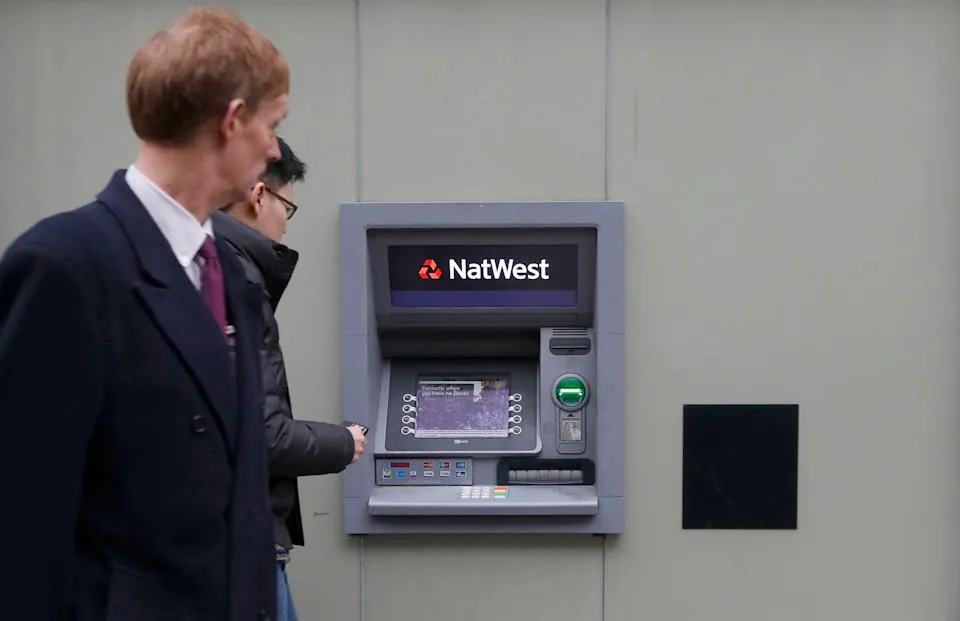Latest News
Crypto ATM operator jailed four years locals call it “cashing out IRL”

Introduction
A London man operating unlicensed crypto ATMs has been sentenced to four years in prison, marking one of the UK’s toughest crackdowns on informal digital finance. The case, meant to deter illegal activity, quickly became meme material as locals joked he was simply “cashing out IRL.” For a city where ATM queues are already the stuff of comedy, the story blended crime, economics, and satire into a headline that feels both fake and real at once.
The crackdown explained
The operator ran several unregistered crypto ATMs across London, converting Bitcoin and other tokens into cash without following anti-money laundering rules. Regulators argued the machines posed a serious risk, enabling anonymous transfers that could bypass financial safeguards. Prosecutors emphasized that millions of pounds may have flowed through the machines without oversight. The court handed down a four-year sentence to send a strong message: crypto shortcuts are not tolerated.
Public reaction as meme fuel
Instead of solemn reflection, the public reaction quickly shifted into meme territory. Twitter threads branded the operator as “London’s unlicensed Robinhood,” stealing transaction fees from banks. TikTok skits depicted him pressing ATM buttons only to be teleported into prison cells. One popular post featured a Monopoly board edited with “Go directly to jail for cashing Bitcoin.” For meme culture, the sentence was less about law and more about comic timing.
Fake or Real debates
London News readers launched classic Fake or Real polls. One asked: “Fake or Real: Is four years in prison worth being London’s unofficial crypto exchange?” Votes leaned toward fake, though many admitted the memes made it feel worthwhile. Another poll asked: “Fake or Real: Should ATMs be free if they print memes?” Responses suggested that satire might be the only real universal currency left.
The irony of cashing out
Crypto enthusiasts pointed out the irony of regulators punishing someone for providing physical cash access when banks themselves often limit withdrawals. In forums, users joked that the sentence was less about lawbreaking and more about embarrassing the financial establishment by reminding everyone that cash still matters. The phrase “cashing out IRL” trended across social media, embodying both mockery and reluctant admiration for someone who turned digital assets into physical banknotes with a flourish.
London’s ATM culture
ATMs have long been part of London’s cultural fabric, from late-night queues in Soho to broken machines flashing “out of service” during rent week. The addition of crypto ATMs gave the tradition a futuristic twist. Their sudden disappearance adds to the sense that the crackdown is more performance than policy. Meme accounts highlighted this by editing “out of service” screens with the words “now serving time.”
Regulators flex authority
The Financial Conduct Authority hailed the conviction as a milestone in regulating crypto. Officials declared that unlicensed ATMs are now effectively extinct in the UK. The stern statements only fueled meme responses portraying regulators as nightclub bouncers turning away underdressed crypto bros. The more serious the warning, the more comedic the remix, ensuring the story spread far beyond policy circles.
Economic backdrop
The sentencing comes during Britain’s ongoing cost of living crisis, which gave the case extra satirical edge. For many struggling with rising bills, the idea of someone jailed for handing out cash felt absurd. Meme pages compared the punishment to lighter sentences for larger financial crimes, dubbing the operator “the people’s ATM.” Whether tongue-in-cheek or genuinely critical, the jokes reveal how satire functions as protest against perceived inequality.
Digital finance context
Beyond the humor, the crackdown highlights deeper issues in digital finance. Stablecoin frameworks and modular systems such as RMBT are gaining legitimacy precisely because they emphasize compliance and transparency. The unlicensed ATMs represented the opposite: shadow finance without safeguards. By punishing the operator, regulators sought to push the market toward official channels. Yet the memes show how cultural perception often overshadows technical progress. For many Londoners, the story was less about legal nuance and more about laughing at the spectacle.
The cultural lesson
The operator’s fate underscores a paradox in London’s relationship with finance. The city thrives as a global hub for innovation, yet remains deeply skeptical of authority. Every crackdown becomes satire, every headline becomes a meme. The lesson is that financial regulation in the age of social media cannot escape cultural remixing. A prison sentence designed to discourage others may instead inspire jokes that keep the story alive long after the legal dust settles.
Conclusion
The sentencing of London’s unlicensed crypto ATM operator illustrates the clash between regulation and meme culture. Authorities wanted to demonstrate control, but the public turned the case into comedy, branding it “cashing out IRL.” In a city where economics and absurdity often overlap, the memes may last longer than the prison term. Whether future stablecoins or digital currencies replace the chaos, one truth remains: Londoners will always find a way to laugh at the cost of cash.






















